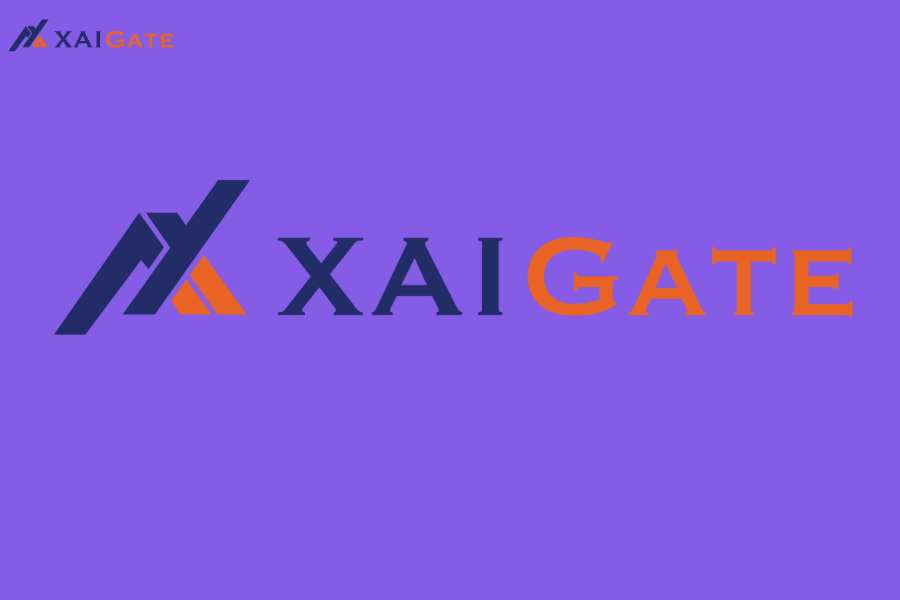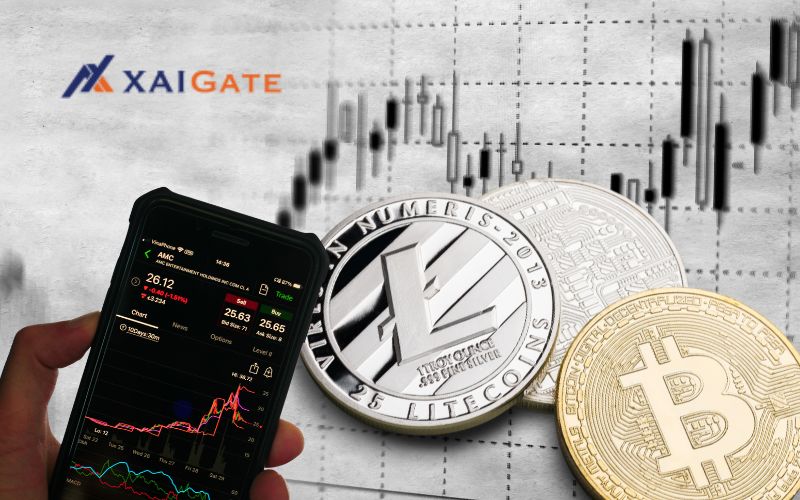How Do I accept Crypto Payments on My Website?
Accepting crypto payments on website typically entails various major steps to secure a smooth and safe transaction process. To start with, it’s necessary to have a digital wallet prepared in order to keep the coins received. Next, you should choose a trustworthy cryptocurrency payment gateway like Coinbase Commerce or BitPay that will help execute transactions while providing essential protection mechanisms. Then incorporate this payment gateway into your site usually by utilizing either a plug-in or an API so that clients can utilize different forms of cryptocurrencies when buying from your online store. Finally, updating your website including clear directions as well as possible help for internet shoppers opting for digital currency can really improve their shopping experience as well as expand your marketing coverage.

Crypto Payments
Cryptocurrency transactions refer to innovative ways of conducting transactions using digital currency like Bitcoin, Ethereum and other cryptos. They are beneficial in many ways including lower transaction fees, faster processing time as well as higher levels of security compared to traditional forms of payment. Through blockchain technology, crypto payments guarantee transparency and minimize chances of fraud. Moreover, by choosing option accepting crypto payments a company can reach out to a wider group through attracting tech-oriented customers and foreign clients who prefer using digital forms money. With ongoing increase in popularity of cryptocurrencies, embracing crypto payment choices offers competitive advantage as well as lifelong security for business enterprises to come in an ever-changing virtual economy.
Crypto Payments for Business
For global transactions with clients, enterprises are offered by way of doing business accepts cryptocurrencies as a modern secure method. Some advantages are lower transaction fees, fast processing times and better security due to the incorporation of models that make this a commonplace idea among some companies. Furthermore, brands appealing to the tech-savvy that use these currencies can attract them as well as take on new markets in order to have more advantage over competitors operating in their respective regions.

Blockchain
Blockchain is a digital system used to distribute a secured record of multiple transactions via numerous computers. It is made up of blocks that contain lists of transactions combined to form a time-like structure. The clarity and unchangeable character offer outstanding means to ascertain confidence in various areas for example; banking services, management of supplies disposal, voting systems as well as identification assurance. Moreover, as it eliminates intermediaries and makes way for person-to-person conversations, there are high chances that it will alter sectors and promote creativity.
Cryptocurrency
Cryptocurrency refers to an online or digital type of currency that makes use of cryptography in order to confer security, making it hard if not impossible to counterfeit or duplicate. Cryptocurrencies are decentralized unlike fiat money which is issued by central banks and have their occurrence on different platforms based on blockchain technology that promotes transparency and immutability making them different from each other. Some of the best-known cryptocurrencies like Bitcoin, Litecoin and Ethereum have become widely accepted thus facilitating transactions among users, investment as well as engagement in diverse digital financial services. The usage of Cryptocurrencies is on the rise causing them to disrupt traditional finances so that they become alternative means of accessing banking services while facilitating global person-to-person payments.

Nodes and Miners
The nodes and miners are important for a blockchain network, since they help to secure it and ensure that it works well. Nodes refer to different computers storing and preserving copies of the blockchain, verifying transactions across the network while relaying them. Complex mathematical computations are used by miners to validate transactions as well as add fresh blocks onto the blockchain thereby getting rewarded in cryptocurrency. Therefore nodes coupled with miners play an integral role in maintaining decentralization which makes blockchain durable and reliable.
Public Addresses and Private Keys
Public addresses, just like private keys, constitute the basic building blocks of security in cryptocurrency. Similar to an account number found in conventional banking systems, public addresses are unique identifiers that enable others to send you cryptocurrencies. On the other hand, a private key is a secret code that allows someone to access the funds of this particular public address, which can be compared to a password. Therefore, it is very important to protect your private key because anybody who has it can manipulate your crypto currency holdings.

Wallets
There are different kinds of wallets that are essential tools for managing and storing cryptocurrencies securely. Software wallets are applications or online platforms, while hardware wallets are physical devices offering enhanced security. With their wallets, individuals are able to send, receive, and keep track of their digital assets hence safe transactions as well as protection against theft or loss. Public keys make wallets a critical element in the world of digital finance by offering control over one’s cryptocurrency holdings.
Cryptocurrency Payment Gateway
A cryptocurrency payment gateway enables your website to accept digital currencies for goods and services. It securely processes transactions, exchanging currencies such as bitcoins or ethers for your local currency or directly into a wallet of your choice. These gateways provide businesses with a streamlined method to reach this expanding sector while guaranteeing rapid and safe tax payers. With real-time conversion rates and protection against fraud, they make it easier to incorporate cryptocurrencies into the present financial framework.
XaiGate As a Payment Gateway
1. Introduction to XAIGATE
XAIGATE resembles PAYPAL; it is a current payment portal that enables users to transact effortlessly. Having said that, it is worth noting that XAIGATE can accommodate payments made in both popular fiat currencies and cryptocurrencies including Bitcoin (BTC), Ethereum(ETH), among others.
2. Diverse Payment Methods
When it comes to users’ flexibility, XAIGATE does bring that in maximally. Both traditional currencies and cryptocurrencies can be accepted, hence allowing the users to carry out their transactions at a global level without having to bother about conversion of currencies or any other payment barriers.
3. Support for Three Major Blockchain Platforms
XAIGATE currently supports three major blockchain platforms, including:
- Ethereum: An extremely well-known blockchain platform that has gained immense traction by virtue of its support for smart contracts and dApps.
- Binance Smart Chain: The Binance blockchain platform, know for high speed in transaction processing as well as being able to retain low transaction charges.
- TRON: A Blockchain Platform Intended to Construct a Decentralized Entertainment Ecosystem.
4. Support for Millions of Tokens
By supporting these three major blockchain platforms, XAIGATE allows users to transact with millions of different tokens. Any token operating on the Ethereum, Binance Smart Chain, and TRON platforms can be used on XAIGATE. This opens up numerous opportunities for users and businesses to leverage their digital assets.
5. Conclusion
XAIGATE is an ideal choice for those seeking a versatile and secure payment gateway. With support for both traditional currencies and cryptocurrencies, along with the integration of three major blockchain platforms, XAIGATE offers a comprehensive and convenient payment solution for users worldwide.

How to Accept Cryptocurrency Payments as a Business
If you want to get in on cryptomoney, the first step is finding a good crypto payment gateway that works for you. Establish a digital wallet to receive and keep your cryptos safe. Incorporate the payment gateway into your website or point-of-sale system for smooth transactions. Moreover, remember that there are always regulations and taxes when it comes to digital currency management. The following are steps on how businesses accept crypto payments;
Step 1 – Select Your Provider
It’s vital for companies intending to include cryptocurrencies in their work to choose the right provider for their crypto payment acceptance. While choosing a provider, it is necessary to consider such issues like the transaction costs, the supported types of cryptocurrencies, security functions and integration ease. A trustworthy service provider should offer easy and fast installation process, firm fraud defence mechanisms and efficient conversion alternatives to guarantee hassle-free payments. Thus, by examining these factors you will find an option that fits your company’s requirements and boosts its capacity for making payments.
Step 2 – Integrate into Your Website
Your website integration with cryptocurrency payment alternatives results in accessing a larger number of clients by your firm who use different currencies. Incorporation of such a system as a crypto payment gateway into the processor will make transactions seamless thus allowing secure and fast payments across several cryptocurrencies. Thus expanding the number of clients you can serve and increasing the options available for payments as well as their convenience is achieved through this method. Some advantages that come with the acceptance of crypto payment include easy installation procedures and security challenges that are difficult to overcome hence attracting more customers towards an organization’s products in e-commerce space.

Step 3 – Optimize for Conversion
When accepting cryptocurrencies, the key to optimizing conversion is to ensure that the checkout process is seamless and easy for clients who are using digital currencies. One way to do this would be by ensuring that your payment gateway is well integrated in your site and has instructions that are clear enough for clients making crypto acquisitions. To make it attractive to more users; offer a variety of common crypto coins at lowered costs. Furthermore, one way of building trust thereby encouraging people to pay with digital money frequently would be through giving prompt customer assistance services as well as addressing any worries regarding security.
Step 4 – Payment Selection
When a business makes a decision on which cryptocurrencies it will accept as means of payments, it involves selecting the payment gateway that is appropriate for it in order to do so. The fees associated with transactions made by using this type of currency are affected by this choice in addition to any kind of possible change in the value of these coins against one another or in relation to local currencies. Accepting several known coins will attract more clients; customers enjoy having options. For your company’s secure and sound payment operations, consider the stability and speed of each cryptocurrency.
Step 5 – Check Payment Details
If a business accepts crypto payments, it is very important to verify the payment information in detail in order to carry out transactions correctly. Checking the cryptocurrency wallet address again will eliminate mistakes since such transactions cannot be undone. Moreover, tracking transaction confirmations on the blockchain can be used to ascertain successful transfers. Strong security measures should be put in place and any money received must be related with invoices for fraud prevention and smoothness of finances handling.
Step 6 – Make the Payment
As a business accepting payments in cryptocurrency, it is essential to create simple and secure customer interface for making those payments. You can do so by setting up a trustworthy cryptocurrency payment gateway that deals directly with clients, tells them what to do, and allows them several options of altcoins. In addition, real-time conversion rates and confirmations should be integrated into your system to improve transparency as well as client confidence. Hence, some increase in the number of people you are able to reach would occur since it becomes easier for them to pay you while also simplifying financial functions.
Step 7 – Payment Processing
After a customer initiates a payment, it involves securely handling cryptocurrency transactions. This step includes authenticating and verifying the transaction on the blockchain for its authenticity and properness. If needed, the payment gateway or processor will convert crypto into your preferred currency that is most convenient for you, and then transfer funds to your account. In order to keep things moving smoothly, reliably, and efficiently while at the same time reducing chances of problems and improving financial operations in business, effective payment processing should be ensured.
Step 8 – Confirmation
Recognizing a successful transfer of crypto funds requires validating that it was effectively completed and consequently received. Mostly, this step constitutes confirming with the blockchain network to ascertain the legitimacy and recording of such cash payment. Besides, payment service providers have to authenticate such business transactions through the respective payment portal desk for correctness’ sake. Payment confirmation ensuring transaction security and a record for both your business as well as the customer marking an end of the entire payment process.
Step 9 – Settlement
In a business that serves for accepting cryptocurrency payments, it is important to turn the digital currencies received into your preferred fiat money or hold them in cryptocurrency. This function entails managing conversion rates, and transaction charges, as well as timely and reliable transfer of funds. Businesses must have safe ways of storing and handling their cryptocurrencies so as to lessen chances of price fluctuations and cyber threats. Effective settlement procedures can help improve the management of cash flows and incorporate cryptocurrency transactions within general financial operations.
FAQs
What is crypto payment gateway?
The crypto payment gateway carries out transactions in digital currency and changes them into fiat or holds onto them as cryptocurrencies.
Do I need a digital wallet to accept crypto payments?
Yes; a digital wallet is required in order to securely receive and store cryptocurrency payments.
Is there any cost for accepting payments in cryptocurrency?
In answering this question, it’s important to note that transaction and conversion fees apply here that differ from one payment gateway to another depending on the type of cryptocurrency used.
How can I add a cryptocurrency payment gateway to my site?
Integration is made possible through the use of plugins or APIs that are offered by the cryptocurrency payment gateway service to link up with your e-commerce platform.
Is it secure to receive payments in cryptocurrency?
Definitely, if trusted gateways for payment processing are used and the best security measures followed, receiving cryptocurrency as a mode of payment is usually safe.

Conclusion
To sum up, your website can be an attractive platform for wider clientele by accepting crypto payments. You can divide digital currencies effortlessly and keep transactions simple by incorporating a reliable crypto payment gateway and setting up a secure digital wallet. They should also know about their associated fees as well as security measures to ensure their operations run smoothly. Therefore, embracing cryptocurrencies would help businesses remain agile and in tune with changing digital money landscape.









